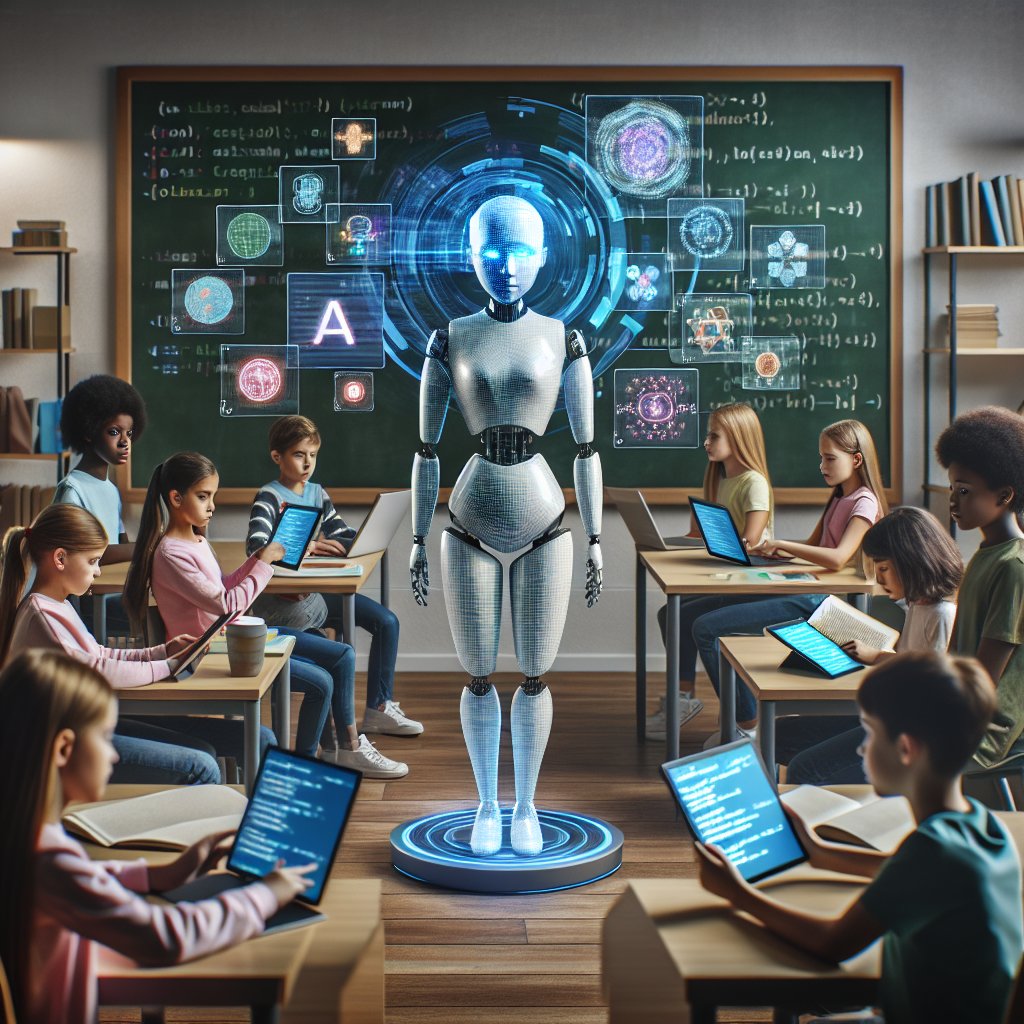Unleashing AI as Tutors: How ChatGPT is Changing the Way We Learn Programming
Introduction: A New Education Frontier
In today's digital world, we're not just talking about the potential of artificial intelligence (AI); we're living it. From smart assistants managing homes to AI algorithms driving cars, technology is transforming every aspect of life—and education is no exception. But what if I told you that AI, specifically ChatGPT, could take on a role as a learnable student, and by doing so, enhance our own learning experience, especially in programming? That's exactly what a recent study by Angxuan Chen, Yuang Wei, Huixiao Le, and Yan Zhang set out to explore. Curious? Let’s dive in!
Learning by Teaching: The Concept
Before we get too far ahead, let’s break down this intriguing concept of "Learning-by-teaching" (LBT). Simply put, it's a teaching method where the learner takes on the role of a teacher. Imagine explaining the Pythagorean theorem to someone; by teaching it, you reorganize your existing knowledge and often learn something new or gain a deeper understanding of the subject. In a nutshell, LBT helps us see the material from different angles, solidifying our understanding.
ChatGPT as a Teachable Agent
In traditional "teachable" AI models, interactions are often mechanical and rigid. Most AI systems can handle only pre-defined tasks, which might feel like teaching someone who only communicates by nodding or shaking their head. Enter ChatGPT, an AI developed by OpenAI known for its capacity to mimic human-like conversation. This study wondered, what happens if we apply this to programming education? Could ChatGPT improve the LBT experience by behaving as a student looking for guidance?
The Study in a Nutshell
So, what did the researchers do? They recruited 41 university students from two universities with a background in computer science. The students were split into two groups. One group taught a ChatGPT agent to solve a well-known problem called the "eight queens puzzle," while the other group learned the same concept through traditional online video tutorials.
The Task: The Eight Queens Puzzle
Imagine trying to place eight queens on a standard chessboard in such a way that no two queens threaten each other. Sounds tricky, right? This classic puzzle was used to teach both algorithmic thinking and practical coding skills. Participants aimed to guide ChatGPT to figure out the solution using structured programming concepts.
What Did They Discover?
Knowledge Gains: Participants teaching ChatGPT reported greater knowledge gains compared to their video-watching counterparts. The conversational nature of the task likely pushed students to clarify and deepen their understanding.
Programming Skills: Students who taught ChatGPT created code that was clearer and more readable, a testament to developing robust programming logic through teaching.
Self-Regulated Learning (SRL) Abilities: Students interacting with ChatGPT displayed enhanced self-regulated learning strategies, crucial for independent learning and problem-solving.
Why These Findings Matter
These findings aren’t just academic. They have profound implications:
Educational Technology: Schools and online educational platforms can potentially use AI not just to deliver information but to interact with students in a way that simulates a real-world teaching experience, thereby enhancing learning.
Skill Development: Learning is more active when you're responsible for teaching—even to an AI. This could lead to better-prepared programmers who not only know how to code but understand the why behind it.
Improving Educational Equity: AI like ChatGPT can provide scalable, personal tutoring to students worldwide, regardless of their socio-economic status.
Real-World Applications
Imagine a world where:
- Students at any level have access to a learning partner (ChatGPT) that’s infinitely patient and available 24/7.
- Professionals can refine their skills through interactive AI mentors that simulate real-world problem-solving situations.
- Educators can create more dynamic, engaging curriculum options that transcend the traditional classroom setup.
Key Takeaways
- A New Role for AI: ChatGPT is not just a tool but a partner in learning, making education more interactive.
- Improved Learning Outcomes: Teaching AI can enhance understanding, coding skills, and self-regulation in students.
- Practical Implications: This approach offers scalable and personalized learning solutions that can transcend traditional socio-economic barriers.
- The Future of Education: AI-based teachable agents could redefine educational strategies, allowing for more personalized and engaging learning experiences.
In conclusion, this study opens a new chapter in educational technology. Not only does it highlight the efficiencies of AI in learning environments, but it also emphasizes its role as a facilitator in the journey of lifelong learning. So next time you sit down to learn something new, don’t just study it—teach it, perhaps to your friendly neighborhood ChatGPT!

